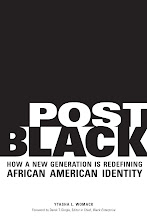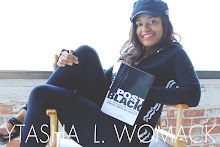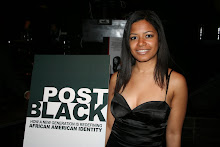Jameel Lawson is the lead singer of the rock band Nothing Forgotten. Their music is featured in the film Forgotten Souls by Salvador Barcena,
YLW: How did you become a rock musician?
JL: I didn't choose to do it. It chose me. It was therapeutic. I networked and found the right people, people I could combine with musically and spiritually. I found people who weren't afraid to cross boundaries or be pidgeon holed into a certain style. I liked being with people of like consciousness where we could do a hip hop beat and turn around and do metal. I'm always growing.
YLW: Did you grow up listening to rock?
JL: I listened to ZZ Top in the 80s, Pantera, Metalica, Bob Marley, Van Halen. I grew up listening to it. It planted the seed.
YLW: But you started off doing r&b and hip hop.
JL: When I was in Good Vibes with Ben Vereen, I started off rapping and doing r&b. I still have those elements that I use. I still rap and sing but it's more aggressive. At one point I wanted to be the rapper and the r&b singer, but there was something within me that was a little more animated. I wanted to scream a little bit. The primal scream as they say.
YLW: Being African American, did people ever question your musical aspirations in rock? Did you question your ambitions?
JL: When you make a choice to embark on a new journey that most people of color don't go, it's like what am I doing? Then when you listen to the still small voice you say this could be something different. Being one of the few black rockers and one of the few notable ones is pretty flattering. It was a little frightening but anything that you do when you step out on faith, like your book, it just works out. Someone said that's a mark of a genius when you do something that the masses can't do. I thought about that. It's a blessing. It's powerful. There was a little bit of fear but I just rock on.
YLW: The term black rock is used to describe rock artists of African ancestry. What does the term black rock mean to you?
JL: In a nut shell, rock is a music of African ancestry that is now predominantly white. When I think of black rock, I think of the origin. Chuck Berry is the god father of rock and roll. Jimi Hendrix was an innovator. Living Colour pressed forward. I am a front man of a rock band with four individuals who are caucausian. I think of all those predecessors who paved the way. I look at black rock in that sense, but not where the music itself is color oriented. I don't see color in music. I don't know if other people do.
YLW: Is rock music a freer expression of music than rap?
JL: Definately. There are no boundaries at all. Your soul is free to express itself. We're not worried about what's going to get us signed. People are open minded when it comes to a rock song. People listen to the music first. Not to talk down on rap, but there's more freedom because rock is not caught up in what's hot at the time. Music needs to resonate with people. Rock music tends to have people who write music that resonates with the soul instead of with what's the hot sound. In rock and roll and even soul, certain songs don't die. Common, for example, is a hip hop artist who has a lot of songs that still resonate. It depends on the artist, it's not just the style of music. There are a lot of r&b artists and rap artists whose songs resonate.
YLW: What's your day like?
JL: I say a prayer, go to work, write a little. I practice two or three times a week. Spend time with my family. I still have a day job right now.
YLW: How do people respond when you say you sing in a rock band?
JL: Depends on who I say it to. If I'm talking to African American people, it's 'oh, that's tight, I like rock music.' Or sometimes, when I tell caucausion people, it's like “oh, really” or 'I never thought that.' Unless it's a person who really listens to that music then they know about Cody Chestnut,etc. But the one's that don't and aren't open minded are surprised that there are black rockers out there. I rarely come across someone who says “why do you do that?” We have a black president today. Being a black rock musician isn't as shocking.
YLW: Why did you join a band?
JL: I've always wanted my own band. I had an experience when I was doing my R&B rap stuff and the cd started skipping and it was so embarressing. I started rapping after the skip but at that point I had already lost the crowd. This was 2002 and I said I want a live band. There is a huge freedom because there are no boundaries. I think about Alanis Morrisette. She was a pop/r&b singer and now she's a rock artist. I still use those gifts and talents of being an r&b singer, I just do it to different music. It's louder. For people who aren't used to going to shows, I say bring your ear plugs.
YLW: Who do you admire?
JL: Chuck Berry, Living Colour, Cody Chestnut, Lenny Kravitz, Prince, Michael. It's all across the board as far as singers that I admire. James Brown, he was one of the first artists to do that primal scream and he wasn't a rock artist. Little Richard, he screamed. Marvin Gaye, Bob Marley. Jim Morrison, the Doors. Stevie Wonder, he's a genius. I can go on. But it's all a reflection . My drummers favorite band is Kiss. We all have our own influences that make up who we are.
YLW: What's it like to be a lead singer of a rock band. You're the front man. What responsibility comes with that?
JL: A caucasion guy told me once that there's something about a black rocker, where you can stand on that stage and people will look just to see. And they'll come because they know it will be really good or really bad.
YLW: Wow.
JL: Sometimes I feel my back is against the wall. It's like they're looking at me hard. I'm the only one on the bill who's the African American front man of a band. So I want to be better than everyone else. It's always a battle of the bands. You want the bands to do a good job, but I don't want to suck. No show is too small to put on a performance that is worthwhile to see again.
YLW: How did Nothing Forgotten meet?
JL: It's not like we knew one another in high school. We assembled over the Internet. We were on myspace, Craigslist. Two individuals got together and started jamming together. I saw an ad looking for a singer and I just joined. We've grown to know one another's quirks. We don't allow that creativeness to be stifled. We don't' say 'oh we can't rap because we're a rock band.' We even have a rock version of a jazz song. We don't set any boundaries. But that comes with trust and to trust the music and what's best for the particular song.
YLW: Why is it important to know about the role of African Americans in rock?
JL: It's important because I can draw upon those inspirations to continue to write great music. Some people feel we created rock and roll and abandoned it. I think it's important because it shows it's not new or alien. It's out there. It's us going back to our roots. A lot of people would disagree with that. Any form of music can have soul in it. It's all about the artist themselves.
Nothing Forgotten's music is available on Itunes.
Monday, April 5, 2010
Rock On: Interview with rockstar Jameel Lawson
Subscribe to:
Post Comments (Atom)






線上成人線上成人激情線上成人潮吹影片電話直播線上成人影片韓國線上成人西洋線上成人影片h線上成人影片hbo線上成人影片gogo2sex線上成人短片go2av免費線上成人影片迅雷線上成人麗的線上成人影片鴛鴦吧線上成人動漫鴛鴦吧線上成人論壇線上成人影片論壇+線上成人漫畫觀看線上成人卡通香港免費線上成人影片觀看香港線上成人片觀看線上成人漫圖線上成人漫畫巨乳線上成人排行榜線上成人打炮網線上成人慢畫線上成人情色影片欣賞線上成人情色網線上成人情色短片線上成人性愛影片線上成人影城383線上成人影騙線上成人影音分享線上成人影音貼圖線上成人影音館線上成人影音網站線上成人文學線上成人日本影片線上成人本土線上成人漫畫免費看線上成人漫畫貼圖線上成人漫畫觀看性影音聊天室後宮影音聊天室後宮影音聊天色情網遊戲免費線上a直播20jack入口av女優博物館素人露點玩美女人pinker
ReplyDelete玩美女人幫
玩美女人員工影片看到爽
玩美女人分享
玩美女人影音秀 mv
玩美女人影片看到爽
玩美女人影片
免費成人電影觀看
曼雪兒情色文學成人小說
成人色圖片
免費成人影騙
I enjoyedd reading your post
ReplyDelete